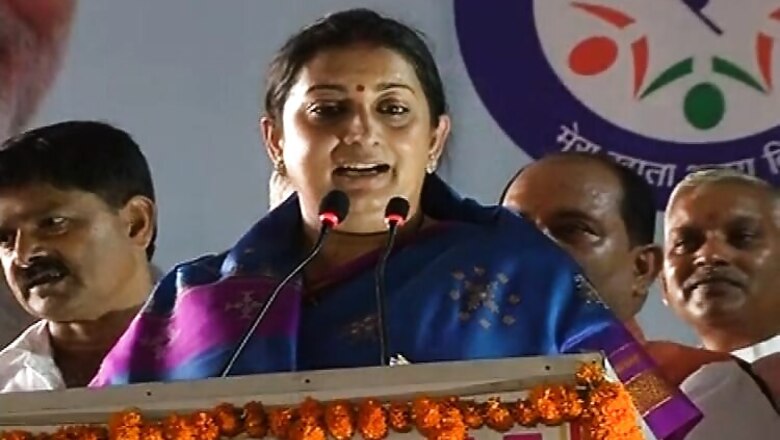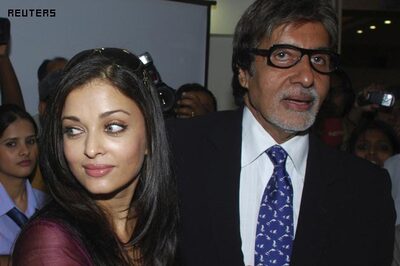
views
New Delhi: The government on Tuesday unveiled a framework for ranking annually engineering and management institutes taking into account placement, entrepreneurship, compensation package, research activity and inclusiveness through reservations among others.
The ranking framework broadly covers all institutes both in government and private sectors, though participation is voluntary in nature, and the first ranking list would be released in early April 2016. The framework for pharmacy, architecture and universities would be released within the next one month.
"It is a revolutionary step. Before the next academic year, we will manage to give our students a plethora of choice on the basis of the national framework which is very transparent, which engages not only the institutes, regulators but the citizens at large," HRD Minister Smriti Irani said while releasing the ranking framework.
The ranking list will be prepared by an agency which would function on the lines of the National Board of Accreditation (NBA). An implementation committee would also be set up for the same.
Irani credited Prime Minister Narendra Modi for encouraging an India-specific ranking framework, especially because of the absence of any Indian institute in the global ranking list by international agencies which had been lamented both by him and President Pranab Mukherjee on various occasions.
The institutes would be ranked separately across disciplines and in category A and B, with category A institutes getting extra weightage for teaching and research. The parameters would include 'outreach and inclusively' with up to 20 marks going to institutes for adhering to reservations for economically and socially disadvantaged sections.
"Fifty per cent economically and socially disadvantaged students should be admitted to score maximum marks," the framework said setting the benchmark. Private institutes could be at a disadvantage as they are not likely to fulfil this parameter as reservations are not strictly binding on them.
"NIRF is an effort to make ranking a transparent process, encourage competition between institutions and verify standards on a yearly basis," Irani tweeted. The India-specific ranking is being see an answer to global ranking agencies where Indian varsities and institutes including the IITs have never been able to make the cut.
However, the higher education secretary said the government has no intention of competing with anyone while NBA chairperson Surendra Prasad saw a positive side for the Indian institutes as they would be further empowered and encouraged to better their performances in the global rankings Irani also tweeted that data uploaded on the portal will be cross-checked with reference to information furnished to regulators and the process will be completed by March 31.
In her remarks, Irani said the ranking would be an answer to issues typical to Indian academic systems. "What we have seen is that research done in English is given prominence. What about research done by scientists in their mother tongue, should they be left out.
"In India we have institutional mechanism that all support groups have constitutional support to pursue dreams in academic institutes through reservation policy. Is that inclusive nature reflected in (international) ranking?" she said.
She noted that most of the highly ranked institutions globally have an history of academics. "But what about those who have just begun but have excelled nonetheless. There are many in private sector who have done exemplary work but do not feature," she said.
The parameters which would be used for ranking are "teaching learning and resources, research, consulting and collaborative performance, graduation outcome, outreach and inclusivity (through reservations) and perception", said an official note.
Each of these has been further sub-divided into nearly 20 sub-criteria to comprehensively assess an institute. A core committee which prepared the framework comprised NBA Surendra Prasad, IIT-Kharagapur Director P P Chakraborty, IIT-Madras Director Bhaskar Ramamurthi, besides the higher education secretary and HRD Ministry officials.




















Comments
0 comment